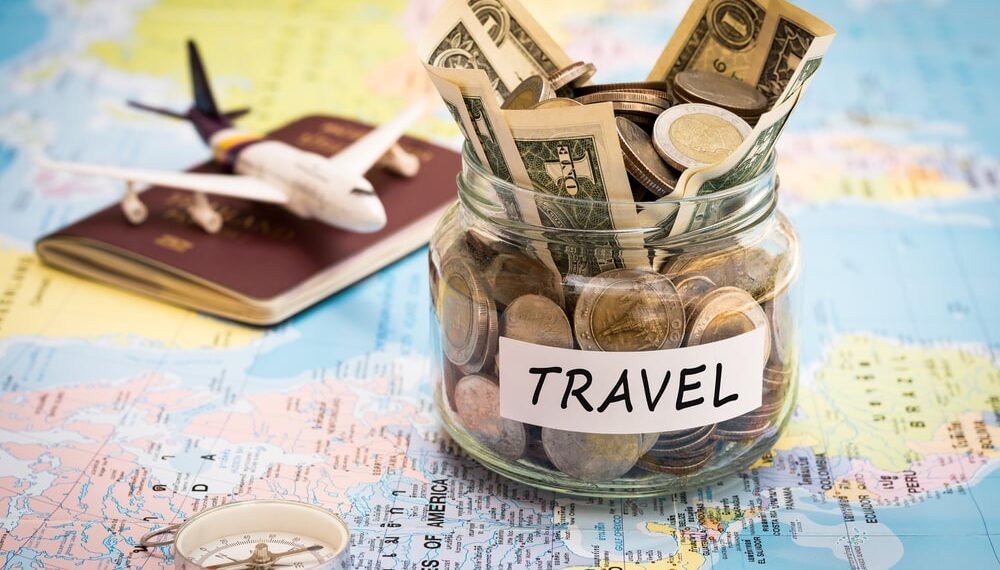Mastering the Art of Finding Cheap Flights
Unlocking affordable air travel requires strategy and flexibility. By understanding pricing patterns and utilizing various tools, you can significantly reduce flight costs and travel more often.
1. Be Flexible with Travel Dates
Flight prices fluctuate based on demand. Traveling during the off-season or on less popular days (like Tuesdays and Wednesdays) can result in substantial savings. Use flight search engines that allow you to view prices across a month to identify the cheapest dates. For example, flying in early December instead of late December can often save you hundreds of dollars. Consider being open to different departure and arrival times as well, as early morning or late-night flights are usually cheaper.
2. Utilize Flight Comparison Websites
Numerous websites aggregate flight prices from various airlines and online travel agencies. Popular options include Google Flights, Skyscanner, and Kayak. These platforms allow you to compare prices, set price alerts, and explore different routes. Experiment with different combinations of airlines and airports to find the best deal. Sometimes, flying into a smaller, regional airport nearby can be significantly cheaper than flying into a major hub.
3. Consider Budget Airlines
Budget airlines often offer significantly lower fares than traditional airlines, but they typically charge extra for services like checked baggage, seat selection, and in-flight meals. If you’re traveling light and willing to forgo these extras, budget airlines can be a great way to save money. Research the baggage policies and potential extra fees before booking to avoid surprises. Some popular budget airlines include Ryanair, EasyJet, and Southwest Airlines.
4. Book in Advance (But Not Too Early)
While booking too early might not always guarantee the lowest price, waiting until the last minute is generally a bad idea. A good rule of thumb is to start monitoring prices a few months in advance and book when you see a price you’re comfortable with. Some studies suggest that the “sweet spot” for booking domestic flights is around 2-3 months before departure. However, this can vary depending on the destination and time of year.
Maximizing Savings with Smart Hostel Booking Techniques
Hostels offer budget-friendly accommodation, but maximizing savings requires smart booking strategies. Learn how to secure the best deals and enjoy a comfortable stay without breaking the bank.
1. Off-Season Travel and Flexible Dates
Traveling during the off-season or shoulder seasons can significantly reduce hostel costs. Demand is lower, leading to lower prices. Being flexible with your travel dates also allows you to take advantage of mid-week discounts or special promotions that hostels may offer. Consider using price comparison websites to track price fluctuations and identify the cheapest days to book. Booking in advance, especially for popular destinations, is another tactic to secure lower rates before they increase due to high demand.
2. Utilize Hostel Comparison Websites
Several websites specialize in comparing hostel prices and amenities, such as Hostelworld, Booking.com, and Hostels.com. These platforms allow you to filter by price, location, reviews, and facilities, helping you find the best option for your needs and budget. Read reviews carefully to assess the quality and cleanliness of the hostel before booking. Some websites also offer loyalty programs or discounts for frequent travelers, providing additional savings.
3. Consider Location and Transportation Costs
While a hostel in the city center might seem appealing, it’s often more expensive. Consider hostels located slightly outside the main tourist areas, as they tend to be more affordable. However, factor in transportation costs to and from the city center. Calculate whether the savings on accommodation outweigh the added expense of public transport or taxis. Sometimes, a slightly more expensive hostel in a central location can be more cost-effective overall.
4. Look for Included Amenities and Free Activities
Many hostels offer free amenities like breakfast, Wi-Fi, and walking tours. Take these into account when comparing prices, as they can add significant value. Some hostels also organize free social events, such as movie nights or pub crawls, which can save you money on entertainment. Inquire about these perks before booking to maximize your savings and enhance your travel experience.
Exploring Travel Hacking Strategies for Budget-Conscious Travelers
Travel hacking offers innovative ways to minimize travel expenses, allowing budget-conscious travelers to explore the world without breaking the bank. It involves leveraging various techniques to maximize value and reduce costs.
| Strategy | Description | Potential Savings |
| Credit Card Rewards | Utilizing travel credit cards to earn points or miles on everyday purchases, redeemable for flights, hotels, or statement credits. | Varies significantly; some cards offer sign-up bonuses worth hundreds of dollars in travel, plus ongoing rewards on spending. |
| Flexible Travel Dates | Adjusting travel dates to take advantage of off-peak seasons or mid-week flights, which are often cheaper than weekend travel. | Savings can range from 15% to 50% depending on the destination and time of year. |
| Accommodation Alternatives | Opting for alternatives like hostels, Airbnb, or house-sitting to reduce lodging costs compared to traditional hotels. | Hostels can cost $20-$50 per night, while Airbnb or house-sitting can offer even greater savings, especially for longer stays. |
| Flight Deal Websites | Subscribing to flight deal websites and setting up fare alerts to be notified of discounted airfares and mistake fares. | Potential savings of hundreds of dollars on international flights, depending on the destination and availability of deals. |
1. Leveraging Credit Card Rewards
Travel credit cards are powerful tools for budget travelers. These cards offer rewards points or miles for every dollar spent, which can then be redeemed for flights, hotels, or even cash back. Many cards also come with lucrative sign-up bonuses, providing a significant boost to your travel fund. It’s crucial to choose a card that aligns with your spending habits and travel goals, and to always pay your balance on time to avoid interest charges that negate the rewards.
2. Embracing Flexible Travel Dates
One of the simplest yet most effective travel hacking strategies is to be flexible with your travel dates. Flight and hotel prices often fluctuate depending on the day of the week and the time of year. Traveling during the off-season or shoulder season can result in significant savings. Use online tools to compare prices across different dates and consider flying on weekdays, which are typically cheaper than weekend flights.
3. Exploring Accommodation Alternatives
Accommodation can be a major expense when traveling. Consider alternatives to traditional hotels, such as hostels, Airbnb, or even house-sitting. Hostels offer affordable dormitory-style lodging, perfect for solo travelers or those on a tight budget. Airbnb provides a wider range of options, from private rooms to entire apartments, often at lower prices than hotels. House-sitting allows you to stay in someone’s home for free in exchange for taking care of their property or pets.
The Benefits and Strategies of Off-season Travel
Traveling during the off-season can unlock unique experiences and significant savings. It’s about exploring destinations when the crowds thin and prices drop, offering a more authentic and budget-friendly adventure.
1. Cost Savings
Off-season travel often translates to considerable cost savings. Accommodation prices, airfare, and even local tours can be significantly lower compared to peak season. For instance, hotels might offer discounts of up to 50% or more during the off-season to attract travelers. Reduced demand also leads to cheaper flights, allowing you to allocate your budget to other aspects of your trip, such as dining or activities. This makes experiencing your dream destination more accessible and affordable.
2. Fewer Crowds
One of the most appealing aspects of off-season travel is the reduced number of tourists. Popular attractions become less crowded, allowing for a more relaxed and immersive experience. You can explore historical sites, museums, and natural wonders without battling hordes of people. This also provides opportunities for more meaningful interactions with locals, as they are less likely to be overwhelmed by tourism.
3. Unique Experiences
Traveling off-season can offer unique experiences that are not available during peak times. For example, some destinations host special festivals or events during the shoulder seasons. You might also witness local traditions or participate in activities that are specifically designed for the off-season. Additionally, certain natural phenomena, like the Northern Lights, are best viewed during specific times of the year, often outside the peak tourist season.
4. Flexibility and Spontaneity
With fewer crowds and lower prices, off-season travel offers greater flexibility and spontaneity. You can easily change your itinerary, extend your stay, or try new activities without worrying about sold-out tours or overbooked accommodations. This allows for a more relaxed and adventurous travel style, where you can explore destinations at your own pace and discover hidden gems along the way.
Choosing Budget Airlines: Balancing Cost and Comfort
Budget airlines offer incredibly low fares, but it’s important to weigh the savings against potential sacrifices in comfort and convenience. Understanding what you’re giving up can help you make the best choice for your travel needs.
1. Understanding the Base Fare
Budget airlines often advertise incredibly low base fares. However, this price typically only covers the cost of the seat itself. Everything else, from checked baggage and seat selection to snacks and drinks, usually comes at an extra charge. Before booking, carefully examine what’s included in the base fare to avoid unexpected costs later.
2. Baggage Policies and Fees
One of the biggest ways budget airlines keep costs down is through strict baggage policies and fees. Expect to pay extra for both checked baggage and even larger carry-on bags. Carefully review the airline’s size and weight restrictions, and pre-pay for any baggage you plan to bring. This is almost always cheaper than paying at the airport.
3. Seat Selection and Comfort
Don’t expect complimentary seat assignments on budget airlines. If you want to choose your seat, especially if you’re traveling with companions, you’ll likely have to pay an extra fee. Legroom can also be less generous than on traditional airlines. Consider whether the savings are worth sacrificing comfort, especially on longer flights.
4. Location(of the Airport)
Budget airlines sometimes fly into smaller, less convenient airports that are further away from the city center. Factor in the cost and time required to get to and from these airports when comparing prices. The extra transportation costs could negate some of the savings from the cheaper flight.






